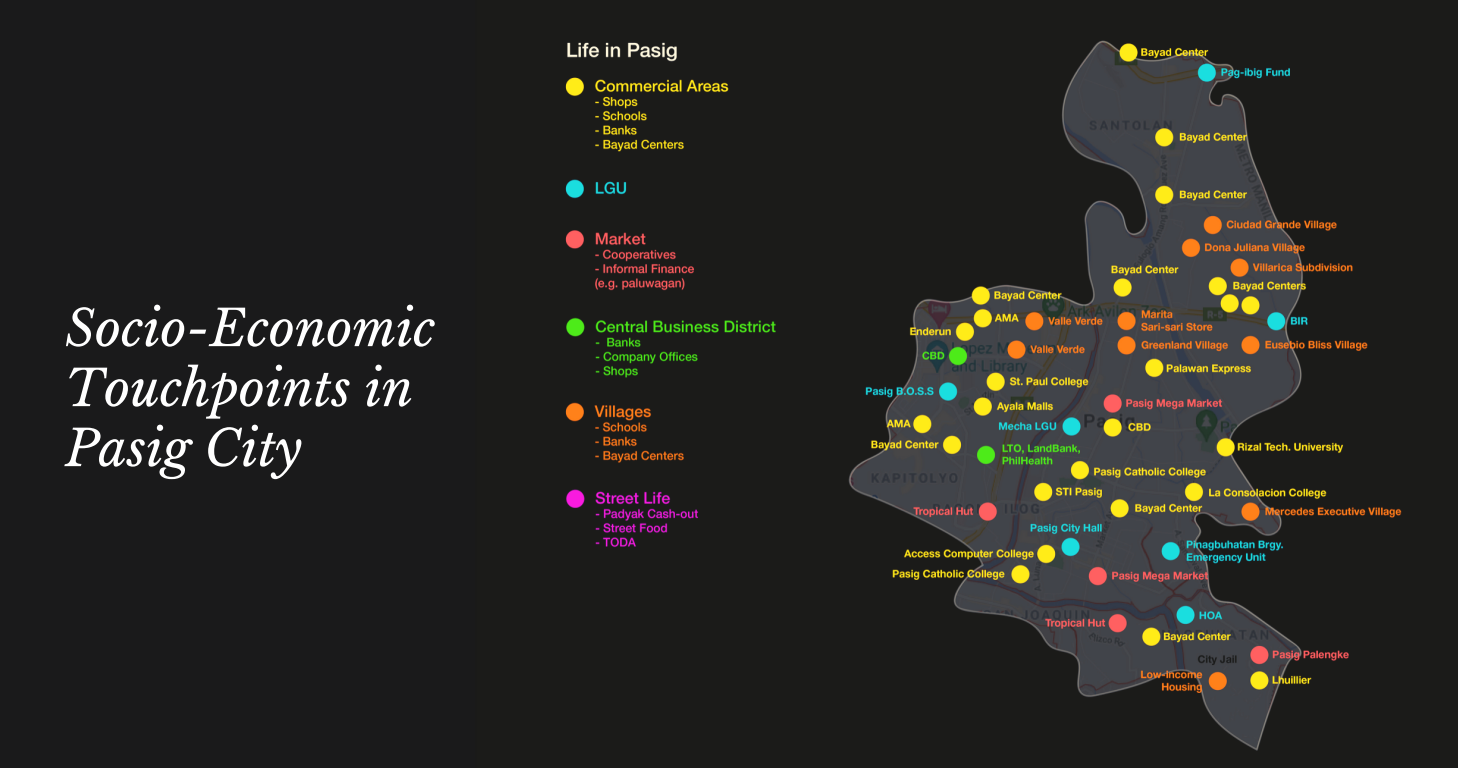
For many low-income Filipinos, money flows more through neighbors than banks — anchored in trust, relationships, and informal collectives like paluwagan. During the 2020 pandemic, the shift to digital payments left these households behind, hindered by lack of IDs, devices, connectivity, and trust. To address this gap, the UNDP Accelerator Lab partnered with KindMind and the Pasig City government to pilot inclusive and accessible digital financial services that bridge formal fintech platforms with everyday financial practices.
The Financially Inclusive Pasig initiative, led by UNDP and KindMind, piloted inclusive digital financial services that bridged informal practices with technology, building trust, resilience, and equitable access for low-income households.
How can fintech be shaped to work with, not against, the everyday financial practices of underserved households?
In Pasig City, many low-income households remain outside the reach of formal financial systems. The barriers are structural and cultural:
While fintech platforms like GCash and PayMaya exist, adoption among the underserved is limited. Informal practices feel safer, more relational, and embedded in daily life. This posed a central tension: how can DFS be designed to complement, not displace, the trusted systems that already work for communities?
KindMind, together with the UNDP Accelerator Lab and the Pasig City government, set out to explore this question. Guided by its Braver Business by Design systemic approach, KindMind developed the 3D Framework of Discover, Design, and Deliver, executed in three strategic phases — ethnographic research, collaborative ideation lab, and rapid development of a portfolio of experiments. Through these approaches, the team aimed to explore how fintech could understand, rather than disrupt, the real financial practices of the communities, then shape interventions that reflect, not ignore, their daily realities.
The project reframed financial inclusion in several ways:
Financial inclusion is not just about technology — it is about trust, relationships, and co-creating systems that work for communities. By bridging informal practices with digital tools, Pasig City together with KindMind, established the beginning of a resilient, accessible, and dignified financial ecosystem.